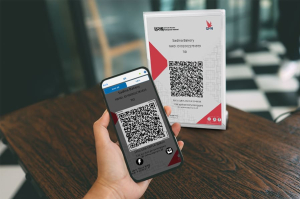BI advances digital Rupiah initiative with completion of proof of concept
The Indonesian Central Bank (BI) has reached a significant milestone in its digital rupiah initiative, known as Garuda Project, with the successful completion of its proof of concept (PoC) for the first phase.
This achievement marks a critical step in BI's efforts to explore the development of a central bank digital currency (CBDC) in Indonesia.
“This new phase builds on three prior stages launched in 2022: the white paper, consultative paper, and public consultation report,” BI Spokesman Ramdan Denny Prakoso said on Friday, December 13, 2024.
The PoC process tested the technological readiness required to support the digital rupiah's business model. The evaluation addressed three key aspects:
- Critical Technical Features: Ensuring robust performance and scalability;
- Transaction Security: Safeguarding the system from potential threats;
- Interoperability: Aligning the system with existing payment infrastructures and financial systems.
“These aspects were deeply analyzed during the PoC design phase to ensure the system delivers efficient, secure, and reliable services,” Denny said.
The PoC also utilized distributed ledger technology (DLT), a system for recording transactions in a decentralized manner.
The technology employs a consensus method to synchronize data across all participants, ensuring transparency and accuracy.
Key findings and achievements
The PoC demonstrated that DLT-based solutions could meet both the business and technical requirements for the wholesale digital rupiah cash ledger.
All test scenarios were successfully executed, validating the system's potential.
“This proves that DLT technology can effectively fulfill the business and technical needs of the wholesale digital rupiah model,” Denny said.
Already have an account? Sign In
-
Start reading
Freemium
-
Monthly Subscription
30% OFF$26.03
$37.19/MonthCancel anytime
This offer is open to all new subscribers!
Subscribe now -
Yearly Subscription
33% OFF$228.13
$340.5/YearCancel anytime
This offer is open to all new subscribers!
Subscribe now






